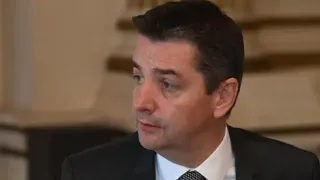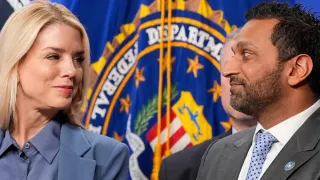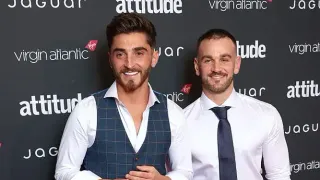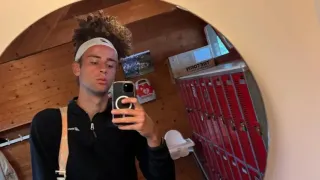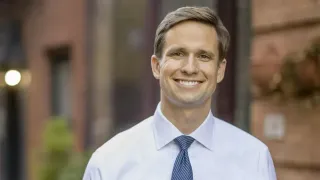June 6, 2018
W Hotels Launches LGBTQ Travel Guides
READ TIME: 5 MIN.
In support of individuality everywhere, W Hotels is rolling out a series of curated travel guides with the goal of becoming the trusted travel resource for LGBTQ+ travelers around the world. In collaboration with next-generation community platform, them., the guides celebrate the unique qualities of each location and empower guests to explore the world in destinations that aren't always the first that come to mind for queer travelers.
Inspired by W Hotels' 20 years of support of the LGBTQ+ community and the brand's increasingly international footprint, W will also take their popular QUEER ME OUT speaker series to six global destinations in 2018, bringing real-time, real talk to new cities and audiences around the world.
"Since day one, W Hotels has been dedicated to inclusivity and equality and it continues to be core to our brand experience," said Anthony Ingham, Global Brand Leader, W Hotels Worldwide. "This platform is designed to connect and inspire the LGBTQ+ community in every W destination, including some not always associated with LGBTQ+ travel. With the expansion of QUEER ME OUT and new, immersive content working with our incredible creative collaborator, them., we are reimagining what a world of acceptance and support could and should be through inspiring communities and a new generation of travelers around the world."
Rediscovering the (W)orld
LGBTQ travelers -- like all travelers -- are looking for different things (i.e. - not always a Pride festival!), not just typical attractions suggested by traditional guidebooks. Many are seeking out authentic historical and social opportunities to gain deeper insight into the struggles and triumphs that have shaped the LGBTQ community in each place.
In collaboration with Cond� Nast's them. and its editor, Phillip Picardi, W is highlighting the LGBTQ experience with new online destination guides focusing on select cities through a curated, queer lens.
The dynamic guides and first-hand video diaries from W and a creative cast of progressive personalities begin at W Mexico City, followed by W Istanbul, W Atlanta and the just-opened W Brisbane. Travelers can watch as Carmen Carrera discovers Mexico City, the first region in the country to legalize same-sex marriage back in 2010 and an exciting destination of vibrant culture, or tune in as Philip Picardi explores Istanbul, which is home to a resilient and welcoming LGBTQ+ community.
W will then bring guests down under to Brisbane and down south to Atlanta with other bold personalities who don't just tour a city but become a part of it. Each guide includes inspirational, educational and immersive video and editorial content, revealing a wealth of experiences alongside talented hosts who are disrupting the status quo.
"At them., we aim to embrace and champion life experiences for the queer community at large. With W Hotels, we have created destination guides that go beyond on-paper descriptions and bring viewers into real life and the adventures that we have lived and loved through a unique, queer lens. Through these guides, we are broadening horizons for queer travelers, breaking down boundaries to show off the incredible tastes, sights and sounds of places that aren't the most well-known to hopefully inspire others to get up and go," said Phillip Picardi, Chief Content Officer of them.
Listen Up (and Out!)
W Hotels is also bringing its thought leadership platform, QUEER ME OUT, to the global stage after a successful stateside debut in 2017. The series traveled across the country last year and featured speakers such as: Editors of GAYLETTER Magazine, Abiezer Benitez and Thomas Jackson; photographer Levi Jackman Foster; and Mickey Boardman, Editorial Director for PAPER Magazine, among others.
This year's QUEER ME OUT series will launch in New York City on June 18 before traveling to four global locations. The series will host events at W Barcelona (June 27), W London - Leicester Square (July 6), W Amsterdam (August 2) and W Mexico City. Each location will offer passionate panel discussions that dive into hot button issues as well as the work and play of experts and icons.
In addition to the series, W will also take their passion to the streets with floats during the London and Amsterdam Pride Parades. Marriott Rewards and SPG members will be able to join in the celebration at W Amsterdam and W London by booking exclusive packages which include overnight accommodations, access to the Pride Parade floats, a meet and greet with an on-site costume designer to get dressed in the best for the festivities, a guided Pride walking tour led by the hotel's W Insider and more.
About W + Pride
Inclusiveness is in W Hotels DNA, and this call to action is the latest example of the brand's award-winning commitment to the LGBTQ+ community. From the brand's groundbreaking "TURN IT UP FOR CHANGE" campaign for marriage equality launched in 2015 to the W Hotels in New York City being the first to offer same-sex wedding packages when New York State passed marriage equality, W Hotels has a long-standing history of Pride-centered activations.
The brand's 2018 lineup is supported by Marriott International's #LoveTravels initiative. Since 2014, #LoveTravels represents Marriott's long-standing commitment to diversity and inclusion and celebrates travelers around the world who also are dedicated to inclusion, equality, peace, and human rights. In 2018, its #LoveTravels Pride celebrations will support Casa Ruby and The Matthew Shepard Foundation.
